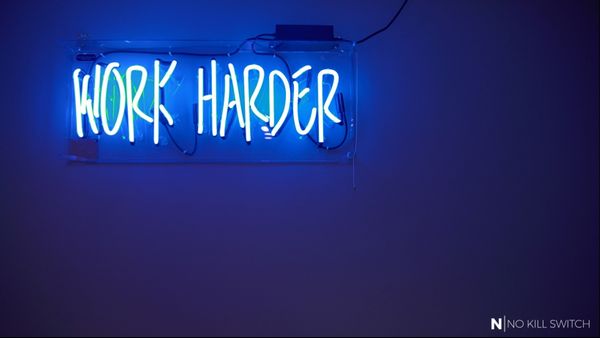Categorization, classification, segmentation - we, human beings, love labeling things and separating them into buckets. I am not an exception, and as someone who builds & develops engineering teams, I have a habit of classifying ... engineers. Of course, there are many ways of doing that: by seniority, by area of expertise, by the type of products built. But what about categorizing the engineers by their (unofficial) role in getting sh... stuff done?
You've probably heard about the 'mercenaries VS missionaries' distinction, but what I mean is something far more elaborate and detailed. And what is more, my goal is not only to present the essential engineer species I distinguish but also to clarify what happens (to the organization) if any particular group is underrepresented or even missing completely.
Here we go:
- paratroopers - geniuses who hack through, carve the path, disrupt, break the unbreakable, and act far behind the front-lines - they may be 100% anti-social, live in their own world, not able to communicate and collaborate, but they'll do work no one else is capable of
- lifeguards - relentless firefighters, ones who are there always to save the day, because they genuinely care - whatever happens, they won't let it go underwater (even if they lack skill, they compensate with energy, sense of duty and commitment)
- sages - the only ones present who are here long enough to understand how things work and why (what was the original intent, concept, vision); they preserve the knowledge about the solution (usually because they played a significant role in its creation), w/o them it's just black magic and horror
- evangelists - ones with the mission, who genuinely believe in what the organization is doing - that it has a real meaning worth fighting for; they are here because they think this is an unique place where they can make a real difference (for clients, society, our common future, etc.)
- conductors - ones who tame the chaos, effectively orchestrate others to achieve more and move further, and have enough balls to make tough, out-of-script decisions when no-one else is eager to; they have a gift of simplifying and clarifying things, usually accompanied with a skill of visualizing the work
- binders - individuals who make others gel together, as something greater than the sum of the individuals; thanks to them, people feel like they really belong (to something unique and special) and make real bonds with co-workers
- wrestlers - ones who do the heavy lifting, make the difference, are always in the first row, never afraid of challenges and obstacles (but need to be directed by someone else); they set the standards high as the objective experts in their particular field (usually technical)
- cannon fodder - those who do not play any major role, but probably would like to (at some point) - for now: flexible 'task pushers' & gap-fillers who tend to do 80% of all work; some have true potential, some are just useful, some have stalled their promising career
- deadwood - people who bring less value than they consume - many of them just DGAF & require constant babysitting (don't mistake it with coaching/mentoring, please), but some just lack skills or are misfits in that particular context; deadwood can be very absorbing, decrease the overall productivity & deteriorate any positive traits in the company's culture
To be clear, these are roles, not positions - a single individual can easily qualify as a combination of some of these (e.g. a sage who is also a conductor), but not every combination makes sense (and hence exists in the wild, of course).
What happens if your team loses all ...
- ... paratroopers - frankly ... opinions vary; on the one hand, they can spur the innovation for the whole organization and cause real break-throughs, but betting on individuals who are brilliant but nearly impossible to cooperate with doesn't sound like a sustainable strategy for gaining a competitive edge ...
- ... lifeguards - you're balancing on the edge of an abyss - if things go awry, there'll be no-one to save the day - no-one will feel obliged to fix the issue; people don't CARE anymore and find it completely normal ("it's just a job, after all", "we work 40h/week in this country", "but why me?")
- ... sages - there's a high chance no-one will notice: for months or even (!) years, because no-one will admit the issue openly; but people will keep going workarounds/short-cuts (because goals have to be met anyway), tangling even more dependencies, breaking boundaries, obfuscating the past design decisions - the solution drifts from complicated towards complex or even chaos (Cynefin-wise)
- ... evangelists - it's much harder to keep a more profound sense of purpose - intrinsic motivations are more likely to dry out, what either drives people out (of the organization) or directs them towards more shallow (and temporary) motivations (which is a short-term strategy)
- ... conductors - everything engulfs either on chaos or in helpless stasis (or alternately in both of them), the team is not capable of anything that requires coordination/synchronization
- ... binders - people work together, but in separation, instead of acting as a team, they resemble an ensemble of 1-head-only "teams", each one with its own agenda, responsibility, commitments; it doesn't mean people won't help each other if needed, but that's just accidental support, not a true synergy
- ... wrestlers - there's no-one to set a proper tempo/standards, the mediocrity reigns and expectation threshold deteriorates; it's perceived as OK to be 'average' while it's uncool and anti-social to step ahead and express any ambition
Cannon fodder and deadwood should be considered separately: the former because it's quite unlikely you'll be running out of them and the latter due to the fact that you should do your best to identify and get rid of them promptly.
Forgetting temporarily about the paratroopers (each of them is unique and it's hard to find a common denominator for them), the groups above can be conveniently aggregated into two "master categories":
- lifeguards, sages and evangelists are roles specific to your organization - someone who was a sage in X obviously won't start with enough org-specific knowledge to immediately become a sage in Y; it also means that growing those roles takes time, effort and mentoring - if you're caught off-guard and lose such an individual unprepared, the reasonable replacement may be a huge issue (or even - impossible (!)); the organization stripped of its lifeguards, sages and evangelists is purely vegetative - frequently w/o realizing that
- conductors, binders and wrestlers are generic roles, based on individual traits and/or experience - being talented/skilled in one or more of those roles massively increases your value in the job market - every sensible employer looks for such talent, so such people are always in high demand
It's a good moment to summarize the thought train of this blog post. IMHO the essence of conscious, long-term team building (which is a key responsibility of every Engineering Leader/Manager) is to:
- for lifeguards, sages and evangelists you need to control the outflow - the risk is losing skills/knowledge/attitude that is very hard to replace; act by shadowing, pairing, doubling positions
- for conductors, binders and wrestlers you need to secure the steady, healthy (& regular) inflow - the risk is finding out one day that all your teams consist of cannon fodder - people who expect to be led, taught, directed, but not (YET) capable to play any major role
- and for paratroopers - you need to consider individually whether your organization can effectively utilize such a sophisticated "weapon" for its own advantage, w/o actually hurting itself
P.S. Two groups I've considered but finally excluded from the least are "leaders" and "gardeners" (ones who help other grow) - for different reasons; when it comes to leaders I think that the "leadership" aspect is covered by the 3 organization-specific groups (lifeguards, sages, evangelists), and even if I find a "gardener" a very important role long-term, its impact on short-term GSD is limited.
P.S.S. Do you agree with the choice of those roles? Can you match them to key people in your engineering organization? Or maybe you have different categories you'd like to share? Feel free to let me know in the comments below - truly appreciated.








